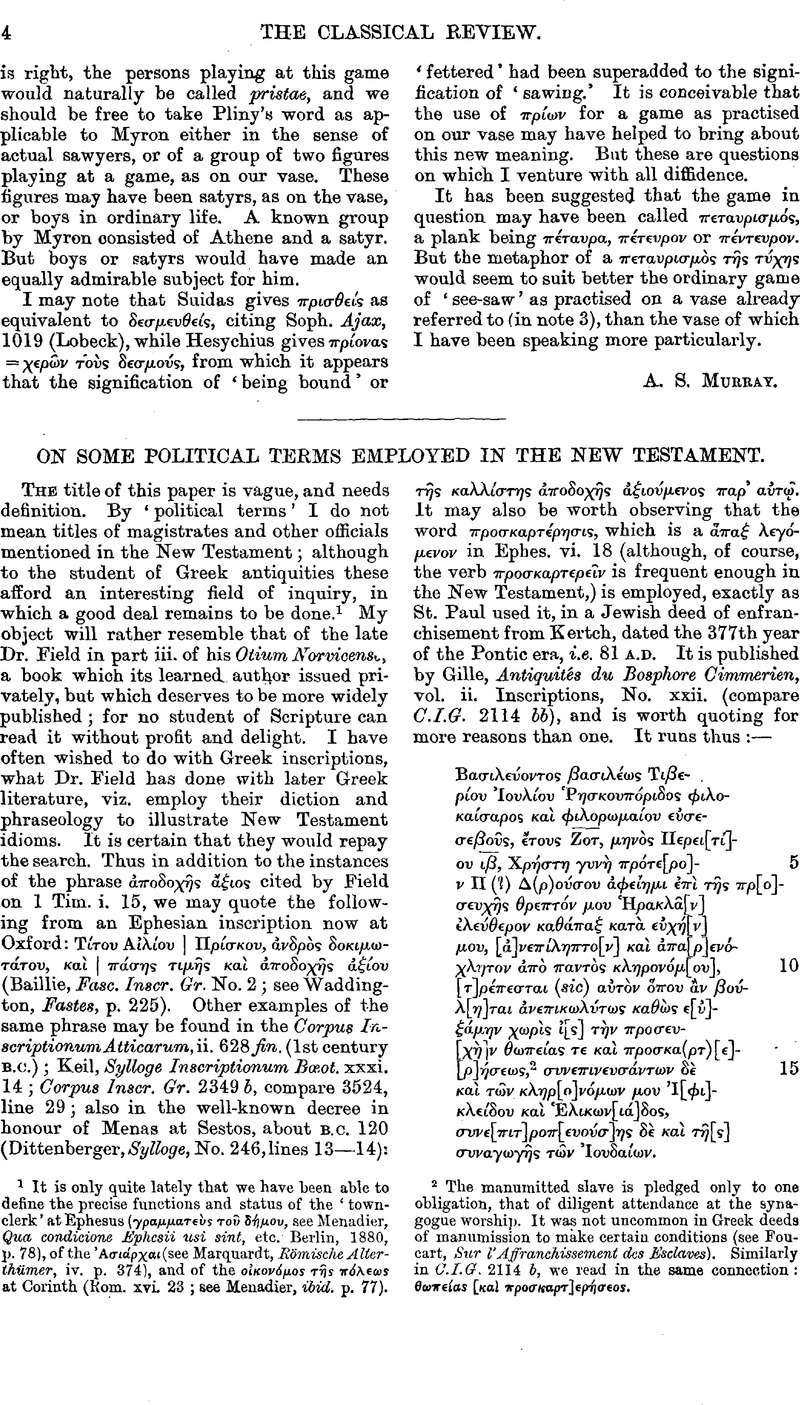No CrossRef data available.
Article contents
On some Political Terms Employed in the New Testament
Published online by Cambridge University Press: 27 October 2009
Abstract

- Type
- Review Article
- Information
- Copyright
- Copyright © The Classical Association 1887
References
page 4 note 1 It is only quite lately that we have been able to define the precise functions and status of the ‘townclerk’ at Ephesus (γραμματεὺς το⋯ δ⋯μου see Menadier, , Qua condicione Ephesii usi sint, etc. Berlin, 1880, p. 78)Google Scholar, of the 'Aσι⋯ρχαι(see Marquardt, , Römische Alterthümer, iv. p. 374)Google Scholar, and of the οἰκον⋯μος τ⋯ς π⋯λωςat Corinth (Rom. xvi. 23; see Menadier, ibid. p. 77).
page 4 note 2 The manumitted slave is pledged only to one obligation, that of diligent attendance at the synagogue worship. It was not uncommon in Greek deeds of manumission to make certain conditions (see Foucart, Sur l' Affranchissement des Esclaves). Similarly in C.I.G. 2114 b, we read in the same connection: θωπεíας [καì προσκαρτ]ερ⋯σεος.
page 6 note 1 See Part iii. of Greek Inscriptions in the British Museum, Ho. 420.




